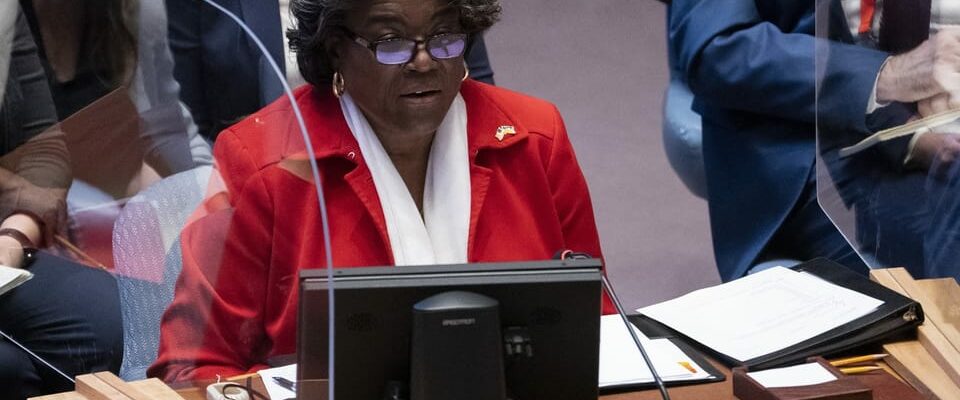Contents
For months, the UN Security Council was divided on the issue of a ceasefire in the Gaza war. The USA, Israel’s protecting power, has so far prevented an agreement. But now Washington is changing course.
That happened: Almost six months after the start of the war, the UN Security Council called for an “immediate ceasefire” in the Gaza Strip for the first time. In addition, the most powerful body in the United Nations is demanding the immediate and unconditional release of all hostages held by the Islamist Hamas. The United States, the veto power, abstained from the vote on Monday, thereby enabling the resolution to be adopted. The 14 remaining members of the committee voted in favor. The decision, which is binding under international law, further increases international pressure on the conflict parties Israel and Hamas. However, it is questionable whether or to what extent the resolution will have any influence on decisions made by the Israeli government of Prime Minister Benjamin Netanyahu or Hamas regarding the further course of the war.
This is what the text of the resolution says: The brief text of the resolution that has now been adopted focuses on the demand for “an immediate ceasefire for the (Islamic fasting month) of Ramadan that is respected by all sides.” This should lead to a “permanent and sustainable ceasefire,” the text says. The draft resolution also calls for the release of all hostages and emphasizes the “great concern given the catastrophic humanitarian situation in the Gaza Strip”. Aid deliveries to the civilian population must be expanded.
This is how Israel reacts: Israeli Prime Minister Benjamin Netanyahu canceled the planned trip of an Israeli delegation to the USA in response to the US abstention. The head of government’s office announced this on Monday in Jerusalem. Strategic Affairs Minister Ron Dermer and national security adviser Zachi Hanegbi were scheduled to fly to the United States on Monday to meet with senior government officials. They wanted to present the Israeli guests with alternatives to a ground offensive planned by Israel in the southern Gaza city of Rafah, which was rejected by the USA and other allies. Another topic of the talks would have been Washington’s proposals for expanding humanitarian aid to the suffering population in the Gaza Strip.
This is how other states react: German Foreign Minister Annalena Baerbock welcomed the UN Security Council’s call for an immediate ceasefire. She was “relieved that the resolution was passed because every day counts,” said the Green politician on Monday on the sidelines of a visit to Jerusalem. This applies both to the starving people in Gaza and to the hostages still held captive by Hamas.
Legend:
US Ambassador Thomas-Greenfield said shortly before the start of Ramadan on January 11th. March, an agreement is close. Hamas must accept the current offer, she demanded. “A ceasefire can begin with the release of the first hostage. “So we now have to put pressure on Hamas to do the same,” she continued.
Keystone/JOHN MINCHILLO
This is what the decision means: Security Council decisions are binding under international law. If an affected state ignores them, the body can impose sanctions – which is not seen as likely in the case of Israel due to the veto power of the USA. The resolution was introduced by non-permanent members of the UN body. A resolution in the UN Security Council needs the votes of at least 9 of the 15 member states. In addition, there must be no veto from the permanent members USA, Russia, China, France or Great Britain.
